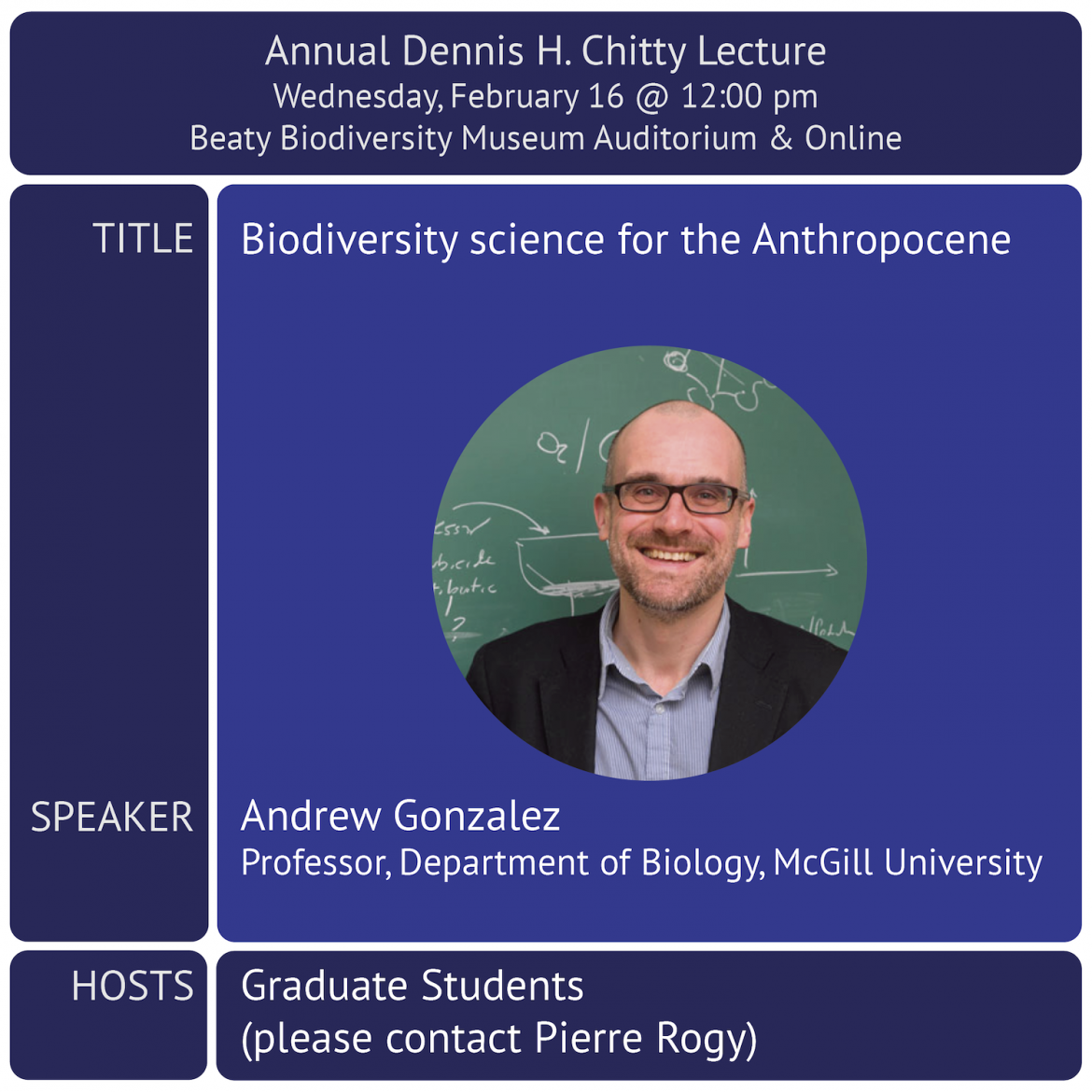
"Biodiversity science for the Anthropocene", Andrew Gonzalez, Professor, Department of Biology, McGill University
Abstract
I will present three interlinked facets of biodiversity science I have worked on to deepen my understanding of the causes and consequences of biodiversity change. I will frame this work as the study of ecological and evolutionary patterns and process that arise at the mesoscale. I will give an example from our work combining theory and experiments to show that population persistence and spread in patchy and variable environments is strongly mediated by dispersal and the connectivity of habitat networks.
In the second part of my talk, I will present the recent progress we have made studying evolutionary rescue in communities. I will present findings from a series of mesocosm experiments we have done with natural plankton communities exposed to globally ubiquitous stressors and contaminants, such as the herbicide Round Up. We found that prior exposure to stressors was a very strong predictor of rescue and the evolution of resistance.
These results expand the scope of evolutionary rescue to entire ecosystems. I will close with an overview of our most recent work applying biodiversity science to conservation in Canada. This has involved modeling and monitoring current and future change in habitat connectivity in the Saint Lawrence ecoregion. A decade of partnerships with the three ministries of the Quebec government, NGOs and municipalities, and had led to the use of this research for planning and prioritization of habitat conservation on the ground. We are now working towards the critical next step of establishing a national Biodiversity Observation Network that will be needed if Canada is to realize its commitments to the targets and goals of new global biodiversity framework of the CBD.
Source: Dennis H. Chitty Lecture , BRS series and 2022 announcement